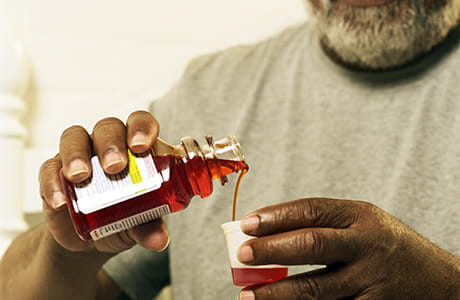
Left ventricular assist device (LVAD)
LVAD surgery
This implanted device helps your heart work better, so you can feel your best.
What is a left ventricular assist device (LVAD)?
Your left ventricle is your heart’s main pumping chamber, responsible for delivering oxygen-rich blood to your body. When your heart doesn’t function as well as it should, you may not feel your best. An LVAD assists your heart to help circulate blood throughout your body.
A left ventricular assist device is a mechanical pump that’s implanted in your chest to relieve symptoms of heart failure, helping you live a longer, healthier life. It pumps blood by continuous flow from your left ventricle through a tube to your ascending aorta, where it’s sent to the rest of your body. A battery pack and controller power the LVAD, which is worn outside of your body underneath your clothes. An LVAD is portable, so you can continue your normal activities.
An LVAD can be used in several different situations — as a temporary bridge to treatment while you await a heart transplant, or if your heart failure is temporary and your heart function will become normal again. It can also be used as a permanent or “destination therapy” to help your heart function properly if you aren’t a good candidate for a heart transplant.
When is an LVAD used?
You’re not a candidate for a heart transplant. If you’re over 65 or have certain medical conditions, such as lung or kidney disease, you may not be a good candidate for a heart transplant. If medications and other treatment methods aren’t working to improve your heart failure symptoms an LVAD can act as a long-term therapy to help your heart pump blood more efficiently, possibly giving you a better prognosis.
What happens before LVAD surgery
What to expect after LVAD surgery
Watch video: Healthwatch 16: LVAD implant
LVAD care at Geisinger
- The knowledge you need – Your dedicated LVAD team will include heart failure specialists, cardiac surgeons, doctors, nurse practitioners, social workers and a VAD coordinator. Your VAD coordinator will be with you throughout your entire journey to answer your questions and connect you with resources. Your team’s expertise has been honed by treating many people with heart failure every year. And their focus is on delivering the care best suited to your needs.
- Specialized experience – Our team of clinicians brings together decades of experience — so you can rest assured your heart is in the best hands.
- Excellent care where you live – With locations throughout central, northeast and south-central Pennsylvania, our experienced heart team provides consultations and comprehensive care. We offer leading-edge treatment options and tailored-to-you care backed by the expertise and innovation of a nationally recognized health system.
- Coordinated transplant care – If you do have an LVAD while you wait for a heart transplant, we’ll help coordinate your care at one of our collaborating heart transplant facilities. We’ll be with you every step of the way as you prepare to receive a new heart to make the process as smooth as possible.
- Genetic testing and counseling programs – Special research programs, such as MyCode®, are only available at Geisinger. Participating in MyCode allows you to contribute to genetic research. By participating, some may receive information about their own genetic risks. Learn about MyCode.




